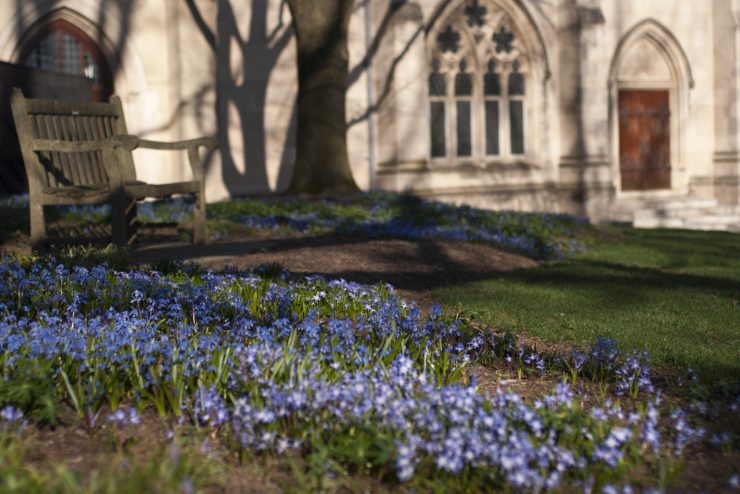Ask, and It Will Be Given You

Matthew 7: 7-12
Jesus said, “Ask, and it will be given you; search, and you will find; knock, and the door will be opened for you. For everyone who asks receives, and everyone who searches finds, and for everyone who knocks, the door will be opened. Is there anyone among you who, if your child asks for bread, will give a stone? Or if the child asks for a fish, will give a snake? If you then, who are evil, know how to give good gifts to your children, how much more will your Father in heaven give good things to those who ask him! In everything do to others as you would have them do to you; for this is the law and the prophets.”
Prayer is at the heart of the life of faith. Without it, all other aspects of our spiritual health begin to atrophy. Central to the life of prayer is the weekly communal gathering for Sunday worship, which from the earliest days of Christianity has been fundamental to Christian practice and faith. At the same time, prayer must also be understood in a much broader context. The Catechism, or Outline of the Faith, found near the end of the Prayer Book defines prayer as ‘responding to God, by thought and by deeds, with or without words’ (BCP 856). Such an expansive definition helps us to understand prayer in the broader sense of communicating and communing with God, in whatever form that takes.
In the Sermon on the Mount, Jesus teaches us, ‘Ask, and it will be given you; search, and you will find; knock, and the door will be opened for you.’ I take it as a teaching about prayer, albeit one that can be easily misunderstood. We know that it does not mean that we will get whatever we ask for, exactly as requested—no matter how much we wish that were true. Prayer is about relationship with God, and Jesus’ teaching in Matthew 7 is an invitation into communion with God. Approaching in prayer the one who already knows the deep desires and sorrows of our hearts is a privileged opportunity to ask and receive the gifts God so graciously gives us.
Immediately following Jesus’ teaching about prayer we find the command often called the golden rule: ‘In everything do to others as you would have them do to you.’ I think we should see this connection not as coincidental but as intentional—linking prayer and the way in which we live our lives. Prayer changes us, shaping us to live more as God intends and to be more like Jesus—the one who taught us how to pray, who opened for us the way of eternal life by his death and resurrection, and who showed us how to live a life of perfect love.
prayer
Strengthen us, O Lord, by your grace, that in your might we may overcome all spiritual enemies, and with pure hearts serve you; through Jesus Christ our Lord, who lives and reigns with you and the Holy Spirit, one God, for ever and ever. Amen.
—Lesser Feasts and Fasts, 2006, 35